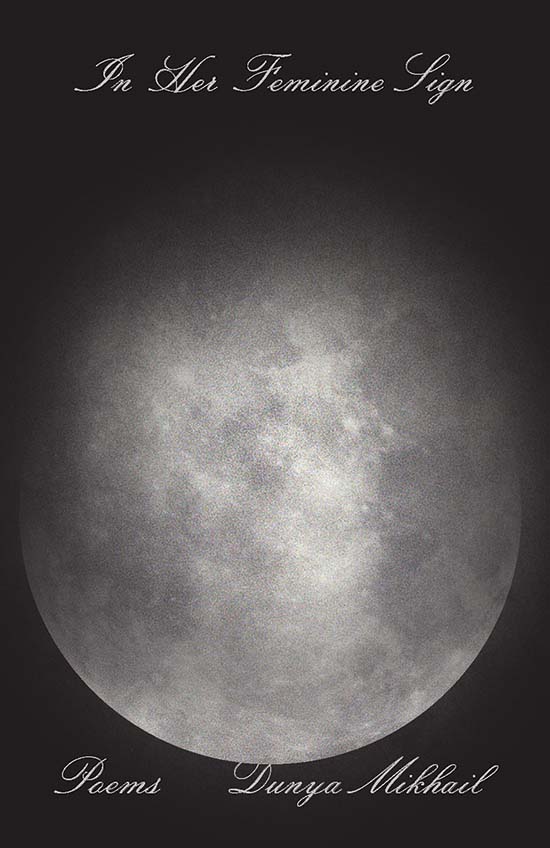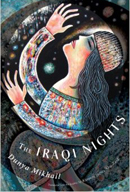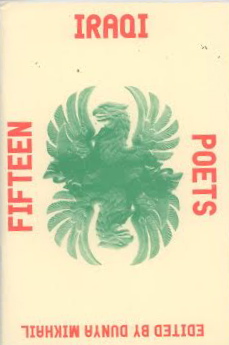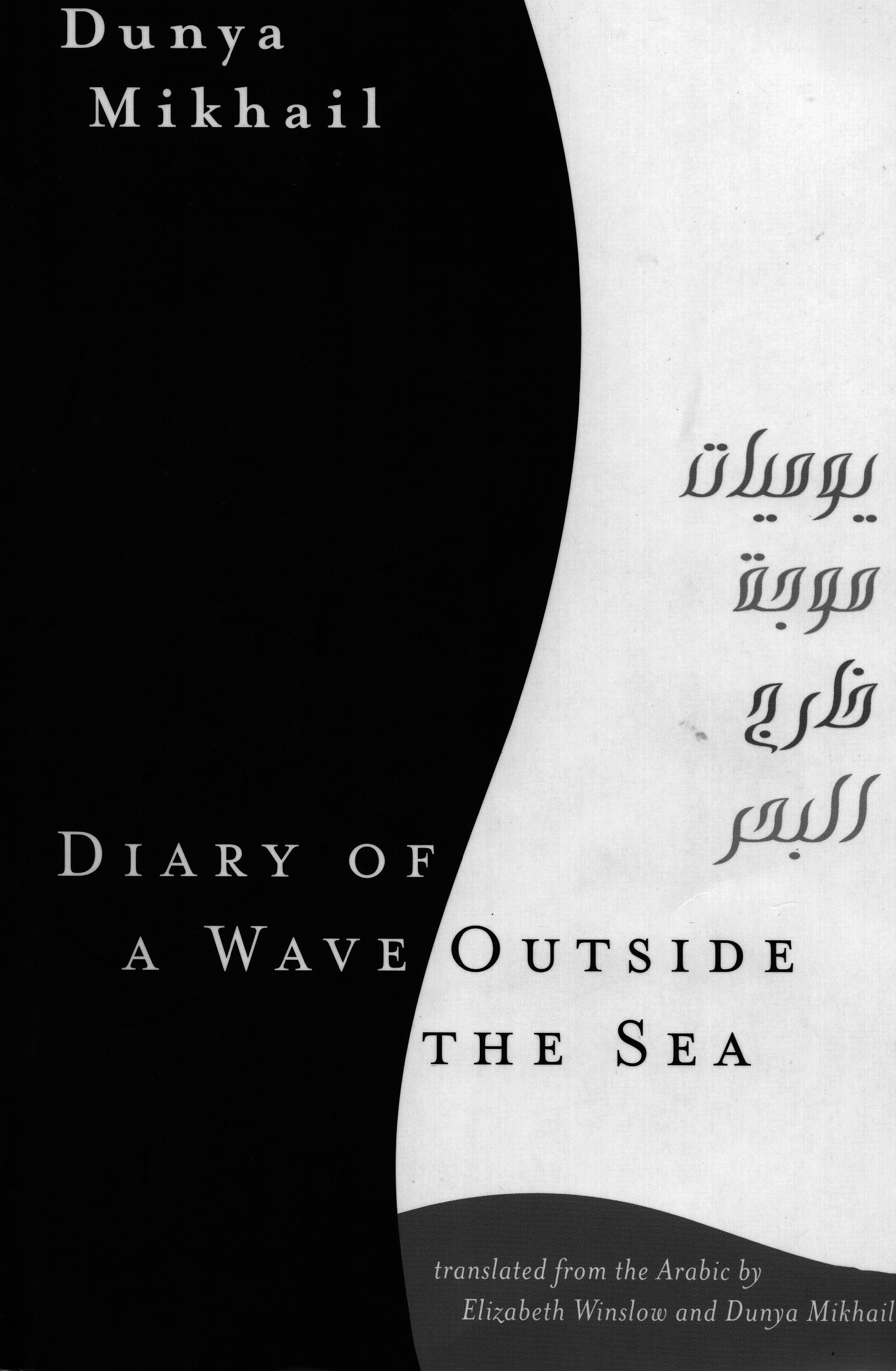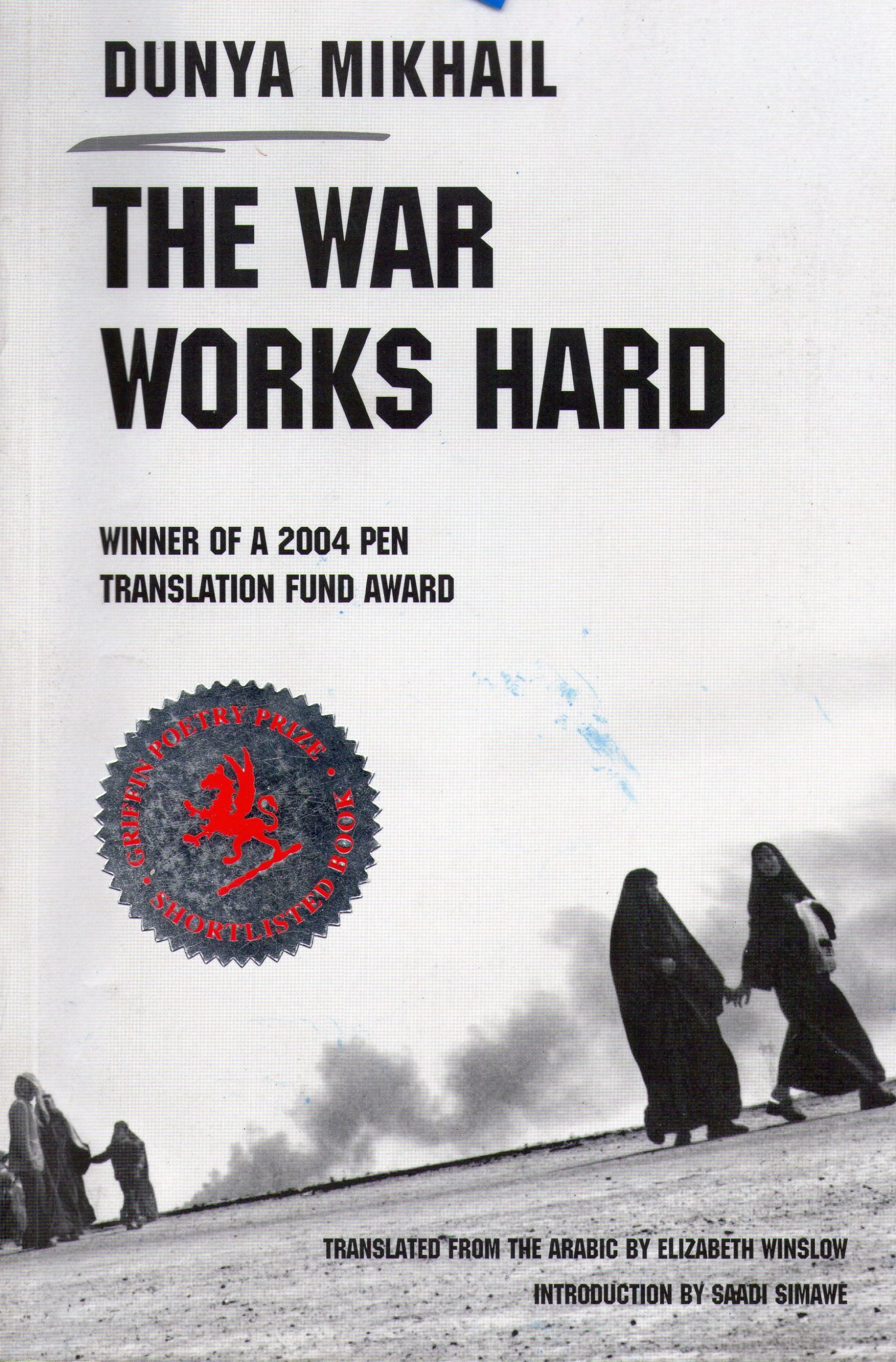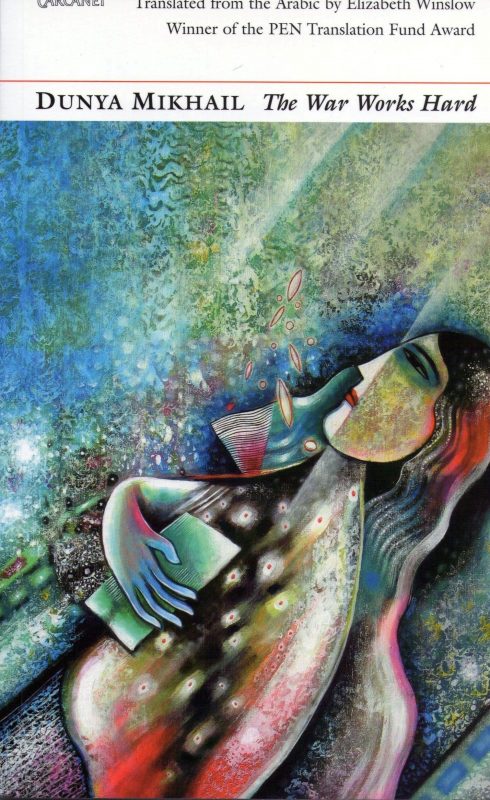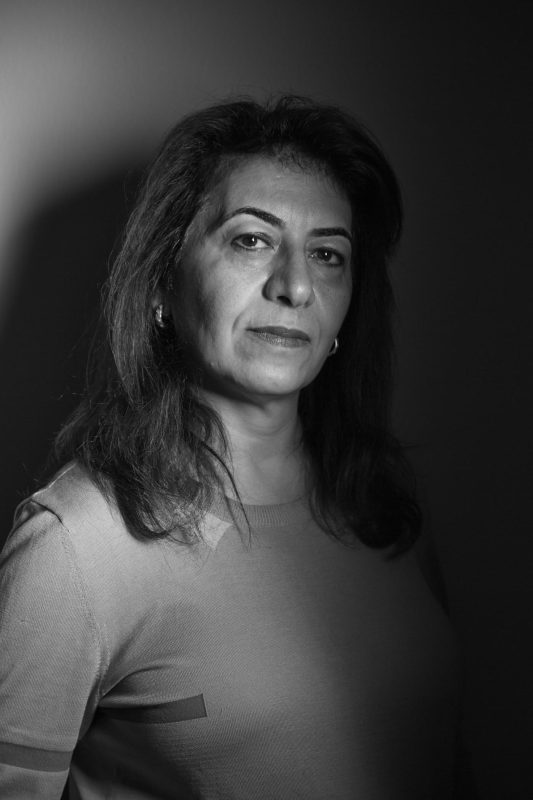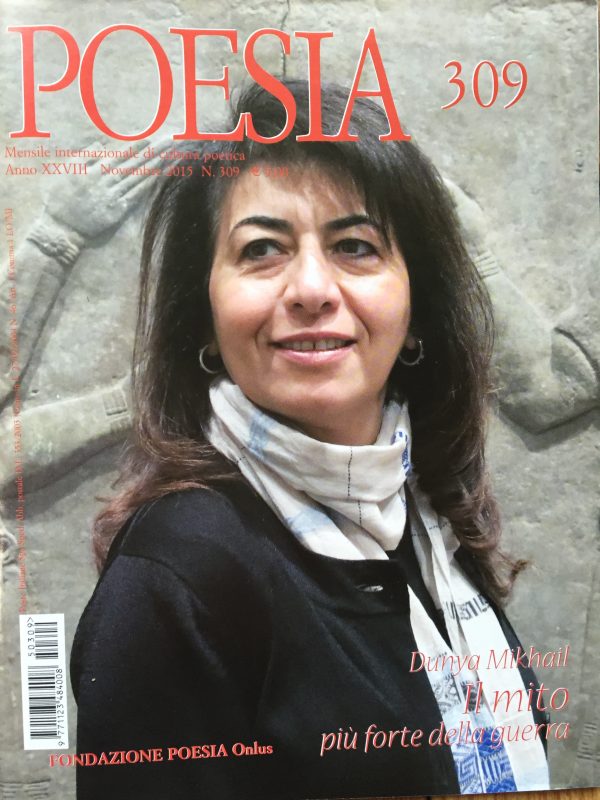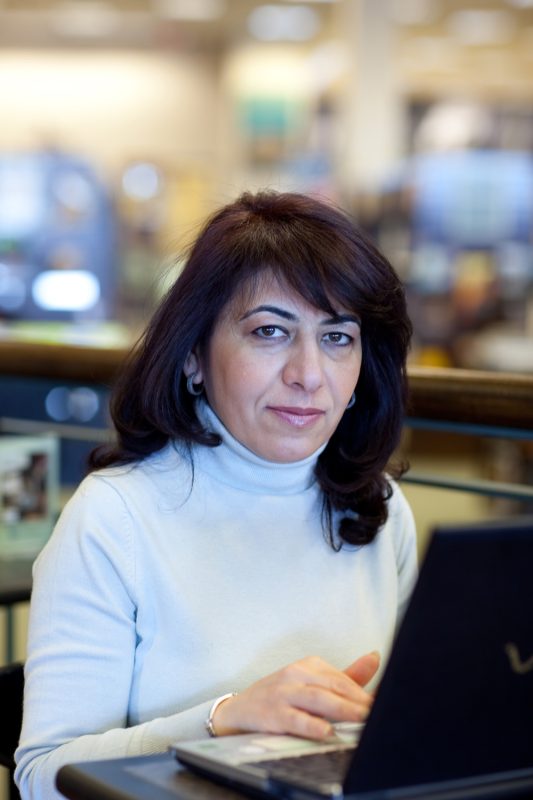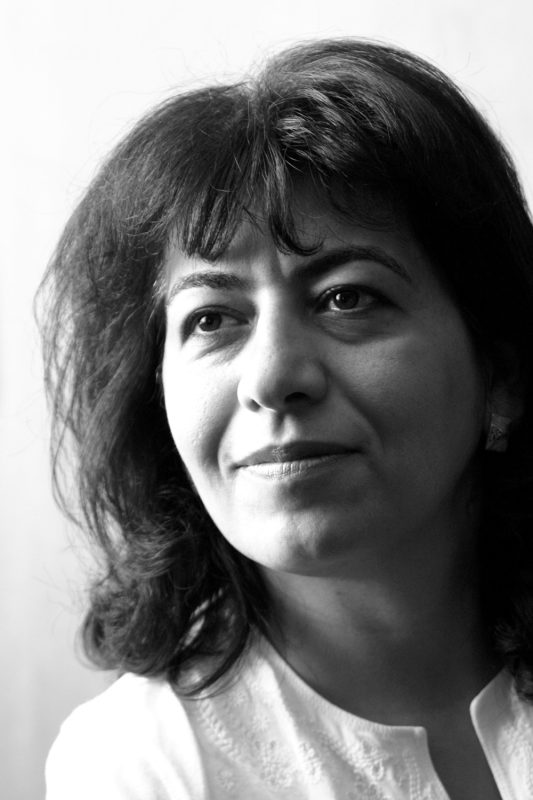
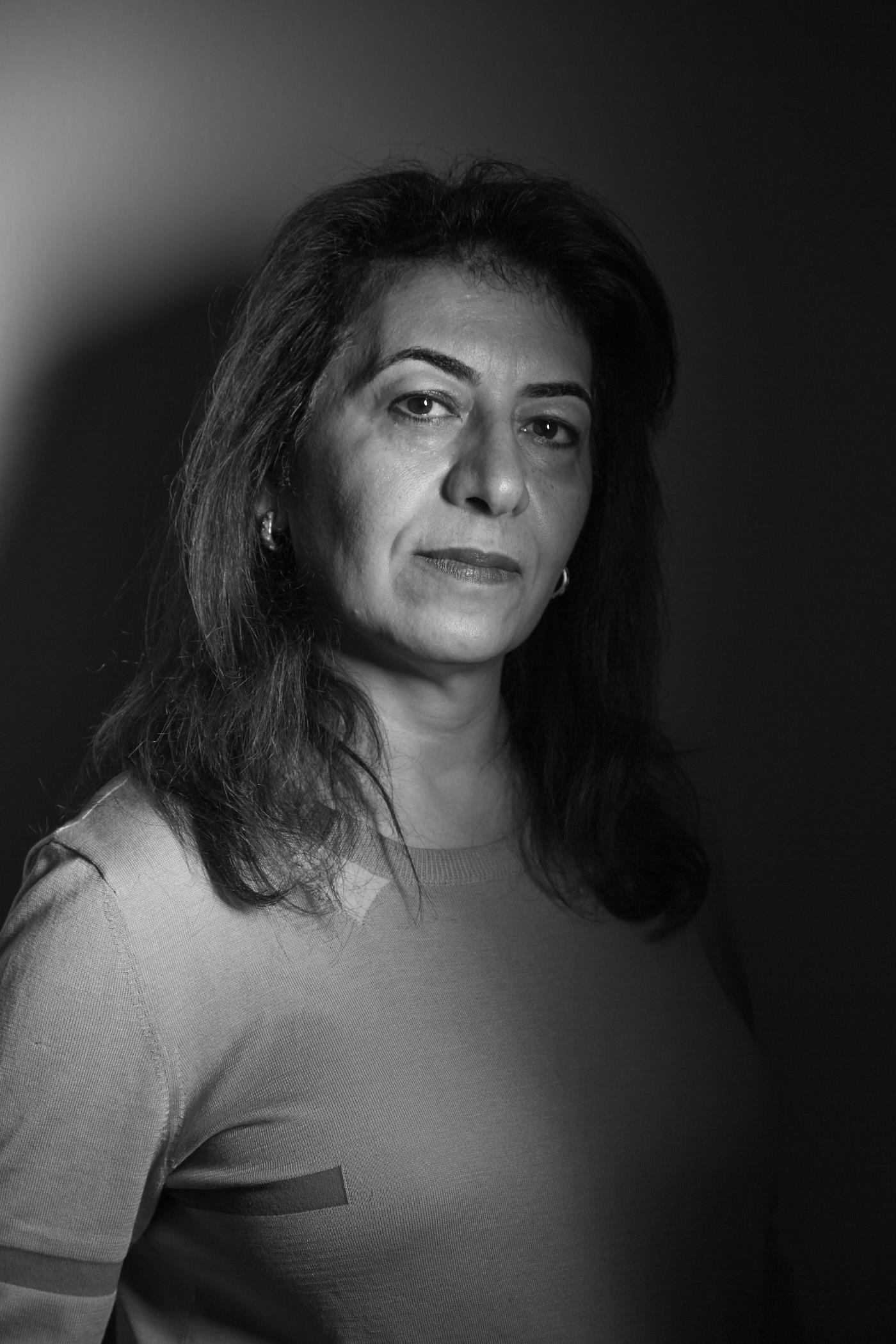
Dunya Mikhail
Acclaimed Iraqi-American Poet & Writer
Arab American Book Award-winner

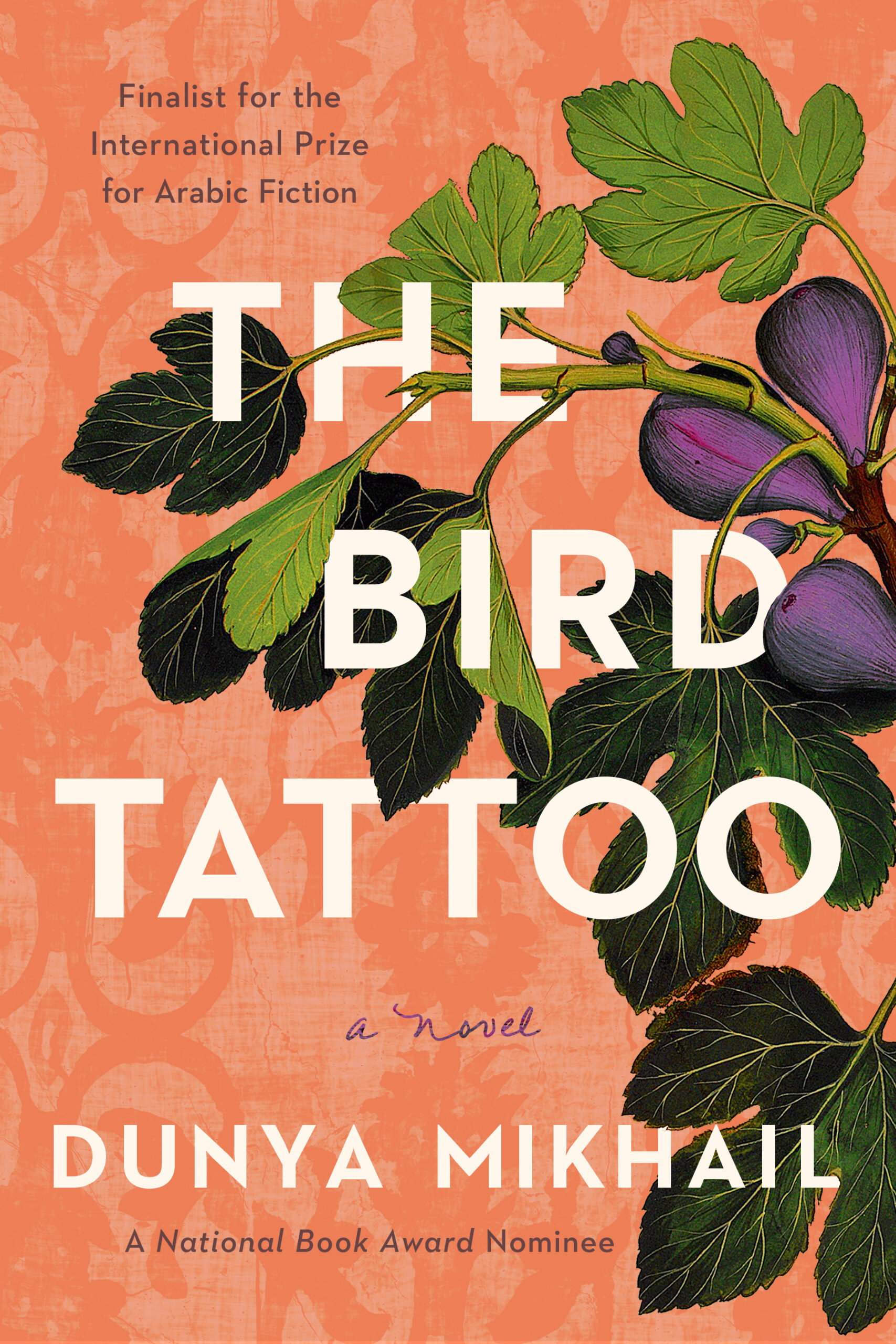
Readings &
Lecture Topics
- In Her Feminine Sign
- The Making of The Beekeeper
- An Evening with Dunya Mikhail
Biography
“Mikhail’s style maintains an impressive fragility and delicacy of image that touches the reader’s heart.” —American Poetry Review
“Stark and poignant, Mikhail’s poems give voice to an often buried, glossed-over or spun grief.” —Publishers Weekly
“Shakespeare would have enjoyed the poetry of Dunya Mikhail, who has spoken of love as a response to a war-torn world—an aesthetic, a value, and a practice. ” —Christian Science Monitor
Dunya Mikhail is an Iraqi American poet and writer. After graduating from the University of Baghdad, she worked as a journalist and translator for The Baghdad Observer. Facing censorship and interrogation, she left Iraq in 1995, first to Jordan and then to America, settling in Detroit. She earned a Master’s degree from Wayne State University and she currently teaches Arabic and poetry at Oakland University in Michigan.
According to the Christian Science Monitor, Dunya Mikhail is “one of the foremost poets of our time.” She is a laureate of the UNESCO Sharja Prize for Arab Culture and has received fellowships from the United States Artists, the Guggenheim, and Kresge. Her honors also include Arab American Book Award, and UN Human Rights Award for Freedom of Writing. Her writing has garnered attention from The PBS News Hour, The New Yorker, The New York Times, The Guardian, and Poetry, among others.
Her books include The War Works Hard (2005) (translated by Elizabeth Winslow), shortlisted for the International Griffon Poetry Prize; Diary of a Wave Outside the Sea (2009), winner of the Arab American Book Award. The Iraqi Nights (2014) received the Poetry Magazine Translation Award (translated by Kareem James Abu-Zeid), and In Her Feminine Sign (2019), which was selected as the Wild Card Choice (UK) and chosen by The New York Public Library as one of the ten best poetry books of 2019. Most recently, her collection Tablets: Secrets of the Clay (2024), translates the the world’s first symbols into the matter of our contemporary, everyday life.
Her non-fiction The Beekeeper (co-translated with Max Weiss), was a finalist for the National Book Award and shortlisted for PEN/John Kenneth Galbraith Award. The Bird Tattoo (2022), her debut novel, was shortlisted for the International Prize for Arabic Fiction.
With irony and subversive simplicity, Mikhail addresses themes of war, exile, and loss, using forms such as reportage, fable, and lyric. In an NPR interview, Mikhail said, “I feel that poetry is not medicine- it’s an X-ray. It helps you see the wound and understand it. We all feel alienated because of this continuous violence in the world. We feel alone, but we feel also together. So we resort to poetry as a possibility for survival. However, to say I survived is not so final. We wake up to find that the war survived with us.”
Mikhail’s honors include the UN Human Rights Award for Freedom of Writing (2001), Kresge Artist Fellowship (2013), a United States Artist Writing Fellowship (2021), and a UNESCO-Sharjah Prize for Arab Culture (2022). She writes in Arabic and English and selections of her work are translated into Italian, Chinese, Spanish, Kurshi, Hindi, among other languages. She is the co-founder of Mesopotamian Forum for Art and Culture in Michigan.
Mikhail lives in Michigan and works as an Arabic lecturer for Oakland University.
Short Bio
Dunya Mikhail is an Iraqi American poet and writer. She is a laureate of the UNESCO Sharja Prize for Arab Culture and has received fellowships from the United States Artists, the Guggenheim, and Kresge. Her honors also include Arab American Book Award, and UN Human Rights Award for Freedom of Writing. Her books include Tablets: Secrets of the Clay; The War Works Hard (translated by Elizabeth Winslow), shortlisted for the International Griffon Poetry Prize; Diary of a Wave Outside the Sea, won the Arab American Book Award. The Iraqi Nights received the Poetry Magazine Translation Award (translated by Kareem James Abu-Zeid), and In Her Feminine Sign, selected as the Wild Card Choice (UK), was chosen by The New York Public Library as one of the ten best poetry books of 2019. Her non-fiction The Beekeeper (co-translated with Max Weiss), was a finalist for the National Book Award and was shortlisted for PEN/John Kenneth Galbraith Award. The Bird Tattoo, her debut novel, was shortlisted for the International Prize for Arabic Fiction. She currently works as a special lecturer of Arabic and poetry at Oakland University in Michigan.
Visit Author WebsiteVideos
Publications
Tablets: Secrets of the Clay
Poetry, 2024
The Bird Tattoo
Novel, 2022
Helen is a young Yazidi woman, living with her family in a mountain village in Sinjar, northern Iraq. One day she finds a local bird caught in a trap, and frees it, just as the trapper, Elias, returns. At first angry, he soon sees the error of his ways and vows never to keep a bird captive again.
Helen and Elias fall deeply in love, marry and start a family in Sinjar. The village has seemed to stand apart from time, protected by the mountains and too small to attract much political notice. But their happy existence is suddenly shattered when Elias, a journalist, goes missing. A brutal organization is sweeping over the land, infiltrating even the remotest corners, its members cloaking their violence in religious devotion. Helen’s search for her husband results in her own captivity and enslavement.
She eventually escapes her captors and is reunited with some of her family. But her life is forever changed. Elias remains missing and her sons, now young recruits to the organization, are like strangers. Will she find harmony and happiness again?
For readers of Elif Shafak, Samar Yazbek’s Planet of Clay, or Ahmed Saadawi’s Frankenstein in Baghdad, Dunya Mikhail’s The Bird Tattoo chronicles a world of great upheaval, love and loss, beauty and horror, and will stay in readers’ minds long after the last page.
In Her Feminine Sign
Poetry, 2019
At the heart of In Her Feminine Sign, Dunya Mikhail’s luminous new collection of poems, is the Arabic suffix ta-marbuta, “the tied circle,” a circle with two dots above it that indicates a feminine word, or sign. This tied circle transforms into the moon, a stone that binds friendship, birdsong over ruins, and a hymn to Nisaba, the goddess of writing. Her “Iraqi haiku” in one section unfold like Sumerian symbols carved onto clay tablets, transmuted into the stuff of our ordinary, daily life and into the digital tablets we carry to Mars. In another poem, Mikhail ponders the Sumerian word for “freedom,” Ama-ar-gi: “what seeps out/ from the dead into our dreams.” With a deceptive simplicity and disquieting humor reminiscent of Wislawa Szymborska, and a lyricism wholly her own, Mikhail slips between her child-hood in Baghdad and her present life in Detroit, between Ground Zero and amass grave, tracing new circles of light.
The Beekeeper: Rescuing the Stolen Women of Irag
Nonfiction, 2018
Since 2014, Daesh (ISIS) has been brutalizing the Yazidi people of northern Iraq: sowing destruction, killing those who won’t convert to Islam, and enslaving young girls and women. The Beekeeper, by the acclaimed poet and journalist Dunya Mikhail, tells the harrowing stories of several women who managed to escape the clutches of Daesh. Mikhail extensively interviews these women—who’ve lost their families and loved ones, who’ve been repeatedly sold, raped, psychologically tortured, and forced to manufacture chemical weapons—and as their tales unfold, an unlikely hero emerges: a beekeeper, who uses his knowledge of the local terrain, along with a wide network of transporters, helpers, and former cigarette smugglers, to bring these women, one by one, through the war-torn landscapes of Iraq, Syria, and Turkey, back into safety. In the face of inhuman suffering, this powerful work of nonfiction offers a counterpoint to Daesh’s genocidal extremism: hope, as ordinary people risk their lives to save those of others.
The Iraqi Nights
Poetry, 2014
“The Iraqi Nights is a haunting and captivating collection of poetry that will ensnare you into its beguiling spell.” —Absolute Magazine
The Iraqi Nights is the third collection by acclaimed Iraqi poet Dunya Mikhail. In this book she personifies the role of Scheherazade in the Thousand and One Nights, who saves herself through the telling of her tales. But unlike Scheherazade, Mikhail isn’t writing to escape death but confronts it through grief and love while summoning the strength to endure. Though the nights are dark in this haunting collection, seemingly as endless as war, the poet cannot stop dreaming of a future beyond the violence, of a country where “every moment / something ordinary / will happen under the sun.” Mikhail threads her vivid illustrations of ancient Sumerian tablets and her handwritten Arabic through an imaginative sequence of haiku-like poems that provide a powerful visual counterpoint.
Fifteen Iraqi Poets
Anthology, 2013
A collection of dazzling new, contemporary poetry from Iraq, edited by award-winning Iraqi-American poet Dunya Mikhail, Fifteen Iraqi Poets compiles fifteen poems, each written by a different, prominent twentieth-century Iraqi poet. Selected, with commentary by Mikhail, this little anthology is the perfect introduction to a glorious literature that traces its roots back to ancient Sumer—a poetry written by those who have lived through a state of continuous wars and massacres, their laments often opening with a plea to their destroyed homeland, “O Iraq.”
Diary of a Wave Outside the Sea
Memoir, 2009
“Diary of a Wave Outside the Sea is a peerless record of the Iraq wars. There is much to learn from and reflect upon, especially for those of us who are Americans, in Mikhail’s beautiful and stirring genre-bending poem.” —Englewood Review of Books
Diary of a Wave Outside the Sea covers Mikhail’s earliest sensations of childhood to a more complicated grasp of death, beginning with the death of her father to the Gulf War and the subsequent Iraqi War. Mikhail writes: “Death always looks for us. It comes from beyond the continents. It crosses long distances holding a basket of fire in its hand.” The two halves of Mikhail’s book merge past and present in a lyrical memoir that moves between memories of her childhood, her father’s death, her Iraqi poet-peers and friends, her job as a journalist for the Baghdad Observer, and culminates with the birth of her daughter Larsa.
The War Works Hard
Poetry, 2005
“Dunya Mikhail’s poems differ from most war poems by the simple fact that she writes about war as a woman, mother, wife and friend.” —Poetry International
“Yesterday I lost a country,” Dunya Mikhail writes in The War Works Hard, a revolutionary work by an exiled Iraqi poet—her first to appear in English. Amidst the ongoing atrocities in Iraq, here is an important new voice that rescues the human spirit from the ruins, unmasking the official glorification of war with telegraphic lexical austerity. Embracing literary traditions from ancient Mesopotamian mythology to Biblical and Qur’anic parables to Western modernism, Mikhail’s poetic vision transcends cultural and linguistic boundaries with liberating compassion.
In the poem “Bags of bones,” she writes:
To give back to your mother
on the occasion of death
a handful of bones
she had given to you
on the occasion of birth?
Articles & Audio
Read What’s In Print
• In Dunya Mikhail’s The Bird Tattoo, Iraqi women are sold as slaves – The Washington Post
• Review: Dunya Mikhail Finds Freedom in Fiction – Publishers Weekly
• UNESCO-Sharjah Prize for Arab Culture awarded to poet Dunya Mikhail – Newswires
• Here are the United States Artists’ 2021 Writing Fellows – LitHub
• The best recent poetry: review roundup — The Guardian
• In Her Feminine Sign chosen as Wild Card in the Autumn 2019 Selections – Poetry Book Society
• The 2019 PEN America Literary Awards Longlist – PEN America
• The Beekeeper of Sinjar by Dunya Mikhail — Financial Times
• Read The Exodus by Dunya Mikhail – The Nation
• The Beekeeper Featured in 10 Best Books in March – Christian Science Monitor
• Flashed through Exile: An Interview with Dunya Mikhail — Guernica Magazine
• Interview: Politics in Service of Poetry — Foreign Policy in Focus
• Review of The War Works Hard — Poetry Review
Listen to Audio
• Rescuing the Stolen Women of Iraq: The Beekeeper Review – New York Times
• A second life: The poetry of Iraqi-American Dunya Mikhail – KUOW News
• Interview: Revisiting Iraq Through the Eyes of An Exiled Poet — NPR
• Listen to Dunya Mikhail read the poem “Tablets III” – Modern Poetry in Translation
Selected Writings
• Read “Friendship Snapshot” – Peste Magazine
from DIARY OF A WAVE OUTSIDE THE SEA (excerpt)
Through your eye
history enters
and punctured helmets pour out.
Frequent tremors occur in your land
as if invisible hands shake your trees day and night.
They blockaded you and banished the oxygen from your water,
leaving the hydrogen atoms to quarrel with one another.
Shouldn’t the nations be disturbed by the face of a child
who shuts her mouth and eyes
in surrender to UN resolutions?
But they only opened their own mouths slightly,
smaller than a bud,
as if yawning or smiling.
We made room in our day for every star,
and our dead remained without graves.
We wrote the names of each flower on the walls
and we, the sheep, drew the grass
—our favorite meal—
and we stood with our arms open to the air
so we looked like trees.
All this to change the fences into gardens.
A naïve bee was tricked and smashed into a wall,
flying toward what it thought was a flower.
Shouldn’t the bee be able to fly over the fence-tops?
Long lines are in front of us.
Standing, we count flasks of flour on our fingers
and divide the sun among the communicating vessels.
We sleep standing in line
and the experts think up plans for vertical tombs
because we will die standing.
—from Part One
THE WAR WORKS HARD (excerpt)
How magnificent the war is!
How eager
and efficient!
Early in the morning,
it wakes up the sirens
and dispatches ambulances
to various places,
swings corpses through the air,
rolls stretchers to the wounded,
summons rain
from the eyes of mothers,
digs into the earth
dislodging many things
from under the ruins…
Some are lifeless and glistening,
others are pale and still throbbing…
It produces the most questions
in the minds of children,
entertains the gods
by shooting fireworks and missiles
into the sky,
sows mines in the fields
and reaps punctures and blisters,
urges families to emigrate,
stands beside the clergymen
as they curse the devil
(poor devil, he remains
with one hand in the searing fire)…
The war continues working, day and night.

